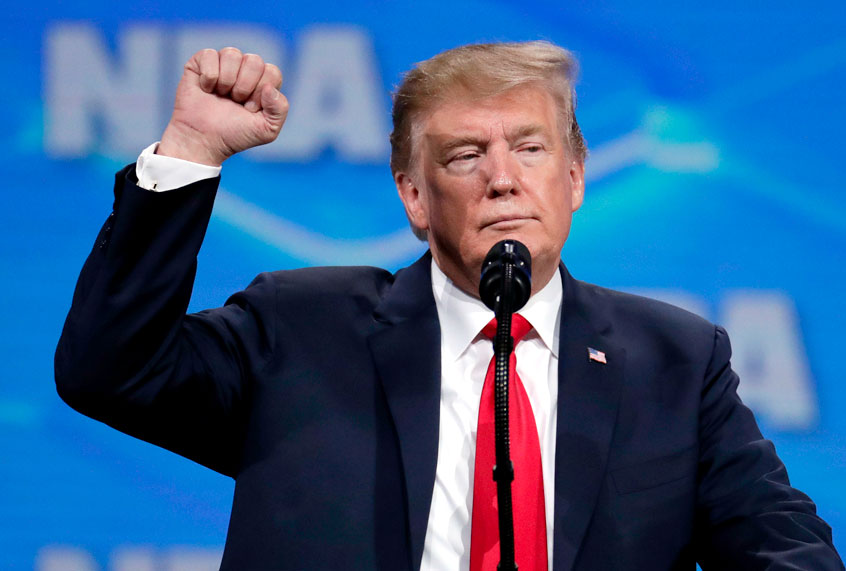President Donald Trump’s approval rating hit 46 percent in the most recent Gallup tracking poll — an all-time high for the Republican in the White House.
Trump’s approval rating held at 46 percent in the second half of April after hitting 45 percent in the first half of that month, according to Gallup. While this means that Trump’s support has essentially remained steady — a change of 1 percentage point falls within the poll’s margin for error — it also suggests Trump has maintained the bounce he has received since early March, when his approval rating dangled at 39 percent.
“The latest rating extends the upper limits of President Donald Trump’s narrow approval rating range by one percentage point, from his previous range of 35 percent to 45 percent,” Gallup wrote. “In addition to the initial interpretation of the Mueller report, which Trump claimed vindicated him from charges that he had colluded with Russia, the economy has offered several reasons for Americans to look more favorably on Trump. These include a strong jobs report on April 5, news that U.S. gross domestic product increased by 3.2 percent in the first quarter and U.S. stocks reaching new highs.”
Gallup noted, however, that its survey was conducted before controversy arose over Attorney General William Barr’s characterization of special counsel Robert Mueller’s report. It is unclear whether Barr’s actions will negatively impact the president’s approval rating once it is factored into future tracking poll results.
“Obviously, the president wants his approval to be as high as possible in advance of his reelection bid next year,” Kyle Kondik, managing editor of Sabato’s Crystal Ball from the University of Virginia, told Salon in an email. “A 46/50 approval/disapproval split would be mediocre at best for most presidents, but it’s among the better approval polls the president has gotten from any major nonpartisan pollster while he’s been in office given that he’s spent virtually his entire presidency with underwater approval ratings. The -4 gap between approval and disapproval is different than other recent polls — but not dramatically so.”
John McCormack of National Review, the conservative journal of opinion, interpreted Trump’s polling numbers with cautious optimism, arguing that the president was still in a politically-vulnerable position while at the same time noting that he was doing slightly better than former President Barack Obama at the same point in his first term — and Obama was ultimately re-elected.
“On one hand, polling below 50 percent still isn’t a good place to be for an incumbent, especially given the strong economy. And the president currently trails Joe Biden by 7 points and Bernie Sanders by 3 points in the RealClearPolitics average of polls,” McCormack wrote. “On the other hand, Barack Obama’s job-approval rating was 44 percent in Gallup polling at the same point in his presidency (April 2011), and he still managed to find a way to win re-election in 2012.”
Former Vice President Joe Biden and Sen. Bernie Sanders, I-Vt., are widely considered to be the two frontrunners for the Democratic presidential nomination in 2020 based on the results of recent polls. As my colleague Shira Tarlo reported last week:
According to the latest POLITICO/Morning Consult poll, 36 percent of respondents named the former vice president as their top pick to run against President Trump next year. That’s a six-point bump from last week’s survey, when Biden led the pack with 30 percent support.
Biden’s short-term surge in support gives him, at least for the moment, a double-digit lead over his next-closest rival, Sen. Bernie Sanders, I-Vt., who is at 22 percent.


